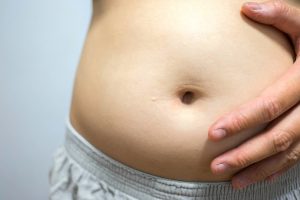Another week has gone by in the world of health news and we have covered quite a bit. To get you caught up on all the important topics that matter to you, we have compiled a list of our best news articles in our weekly health news roundup. You will find information on dyssomnia, stage 4 kidney disease – an advanced form of chronic kidney disease – as well as learn about abdominal swelling and conditions that cause your abdominal cavity to look bloated or enlarged. To better round off your week, we have also included informative articles on encephalomalacia and blood pressure to change after eating.
What is the life expectancy with stage 4 kidney disease? Symptoms, treatment, and diet
 Stage 4 kidney disease is considered an advanced from of chronic kidney disease (CKD) that is characterized by a severe decrease in its ability to perform its function. At this point, the condition has reached a life-threatening territory and will require significant treatment to increase survival.
Stage 4 kidney disease is considered an advanced from of chronic kidney disease (CKD) that is characterized by a severe decrease in its ability to perform its function. At this point, the condition has reached a life-threatening territory and will require significant treatment to increase survival.
Advertisement
Our kidneys are two of the most important organs in the body and are responsible for removing waste and excess fluid. Most of these discarded substances are considered toxic and would lead to several abnormalities if not promptly removed. Continue reading…
What is dyssomnia? Types, causes, symptoms, and treatment
 Dyssomnia refers to a broad classification of sleep disorders that involve difficulty getting to sleep, remaining asleep, or suffering from excessive feelings of sleepiness due to reduced quantity, quality, or amount of sleep they are getting. These conditions are likely the cause of extrinsic or external factors that disturb a person’s sleep, like excessive noise during sleep hours. Or it could be due to intrinsic or internal factors, such as circadian-rhythm sleep disorders preventing the body from obtaining restful sleep.
Dyssomnia refers to a broad classification of sleep disorders that involve difficulty getting to sleep, remaining asleep, or suffering from excessive feelings of sleepiness due to reduced quantity, quality, or amount of sleep they are getting. These conditions are likely the cause of extrinsic or external factors that disturb a person’s sleep, like excessive noise during sleep hours. Or it could be due to intrinsic or internal factors, such as circadian-rhythm sleep disorders preventing the body from obtaining restful sleep.
Complaints from affected individuals may include intermittent wakefulness during the night, early morning awakenings, or a combination of the two. Continue reading…
Encephalomalacia: Definition, causes, types, symptoms, and treatment
 Encephalomalacia is a type of serious brain damage that results in the softening or loss of brain tissue. Causes of encephalomalacia are often linked to inflammation or hemorrhages that are a consequence of being afflicted by cerebral infarction, cerebral ischemia, infection, craniocerebral trauma, or another injury.
Encephalomalacia is a type of serious brain damage that results in the softening or loss of brain tissue. Causes of encephalomalacia are often linked to inflammation or hemorrhages that are a consequence of being afflicted by cerebral infarction, cerebral ischemia, infection, craniocerebral trauma, or another injury.
The term, encephalomalacia, is often used upon gross pathological inspection, as it is much easier to better describe blurred cortical margins and decreased consistency of brain tissue, or brain softening. Continue reading…
What causes abdominal swelling (abdominal distension)? Diagnosis and treatment
 Abdominal swelling or distention is a term used for a number of conditions that cause the abdominal cavity to look bloated or enlarged. The majority of cases involve the stomach or the digestive tract, as they are the most prominent organs in the abdominal cavity. However, medical conditions involving other abdominal structures may also lead the abdomen to look swollen. It is important to note that abdominal distention is not a medical condition on its own, but is simply a sign of an underlying condition.
Abdominal swelling or distention is a term used for a number of conditions that cause the abdominal cavity to look bloated or enlarged. The majority of cases involve the stomach or the digestive tract, as they are the most prominent organs in the abdominal cavity. However, medical conditions involving other abdominal structures may also lead the abdomen to look swollen. It is important to note that abdominal distention is not a medical condition on its own, but is simply a sign of an underlying condition.
Advertisement
There are a number of different medical conditions that present as swelling in the abdomen, some benign and others due to a serious medical condition. The following are some abdominal swelling causes: Continue reading…
What causes blood pressure to change after eating?
 Increases in blood pressure can be the result of many different things, but what people may not realize is that blood pressure change after eating. As many doctors, dieticians, and nutritionists can tell you, there is a response to consuming food that can cause an increase or decrease in blood pressure.
Increases in blood pressure can be the result of many different things, but what people may not realize is that blood pressure change after eating. As many doctors, dieticians, and nutritionists can tell you, there is a response to consuming food that can cause an increase or decrease in blood pressure.
Before we get into blood pressure after eating, it is important to establish how we measure blood pressure. When blood pressure is evaluated, the diastolic and systolic pressure is looked at. These measure a high value and low value of pressure of blood on artery walls. Just to be clear, diastolic is the low value that can be calculated when the heart rests between beats. Systolic is the high value that is measured when the heart pumps blood. Continue reading…
